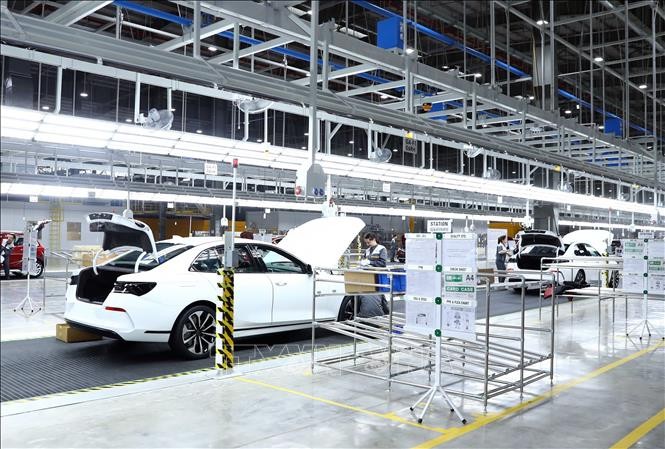
In that context, positioning the role of industrial policy to promote the private economic sector, which has contributed over 50% of GDP and is the mainstay of employment, becomes a key factor.
According to economic experts, the impressive economic growth in recent times and the positive industrial growth have partly contributed to industrial policy. Affirming the key role of industrial policy in creating a strong and sustainable growth environment for the private sector, Associate Professor, Dr. Nguyen Truc Le, Chairman of the Council of the University of Economics, Vietnam National University, Hanoi, said that industrial policy is not just a simple industry tool, but needs to be positioned as a strategic driving force - supporting the private sector to develop rapidly and sustainably, contributing directly to the double-digit growth target in the period 2026 - 2030.
Associate Professor Dr. Nguyen Truc Le said that Vietnam's economy has recovered strongly after the pandemic, with GDP growth reaching 7.09% in 2024 and nearly 7% in the first quarter of 2025, but there are still structural bottlenecks, especially related to industrial policy and the private sector. In particular, labor productivity in the private sector is still low. The private sector currently contributes about 50% of GDP, 30% of budget revenue, and 82% of the total workforce.
The industrial sector has recovered strongly, but the Purchasing Managers' Index (PMI) has fallen below 50 points since Q4/2024, reflecting a decline in production and orders; at the same time, the number of businesses exiting the market reached a record in 2024 and remained very high in the first months of 2025, showing that businesses still face difficulties.
Accelerated public and private investment, disbursement for key infrastructure and FDI inflows into high technology have helped boost production. Industrial production is on a positive recovery path but shows signs of slowing down due to concerns over tariffs.
Strong institutional reforms, specifically Resolution 68-NQ/TW on private economic development with policies such as building a separate commercial credit channel, facilitating access to land resources, cutting administrative procedures and compliance costs for businesses, encouraging investment in research and development, enhancing business connectivity... are considered to be factors that positively impact the prospects of Vietnam's economy in 2025.
However, according to Associate Professor Dr. Nguyen Truc Le, the current growth model still depends heavily on FDI and raw exports. Total factor productivity (TFP) is low and has even been negative for many years.
Associate Professor Dr. Nguyen Truc Le also pointed out issues such as: industrial investment still lacks industry-region focus; support policies have not created a push for domestic enterprises to enter the global value chain; limitations in research and development (R&D), lack of digital infrastructure, lack of connection between the public and private sectors...
According to the experience of East Asian countries and territories such as Japan, Korea, China or Taiwan (China), Associate Professor, Dr. Nguyen Truc Le said that the application of selective, proactive and long-term industrial policies has helped them become global technology manufacturing centers.
Therefore, repositioning the role of industrial policy at the present time is extremely necessary. Along with that, Vietnam needs to establish a new approach, taking private enterprises as the center of policy, taking industry as the foundation and taking innovation as the axis of development," the Vietnam Economic Annual Report 2025 of the University of Economics, Vietnam National University, Hanoi clearly stated.
Ms. Vanessa Kristina Steinmetz, Director of FNF Vietnam, also said that the private sector is the most dynamic driving force of the economy. Therefore, institutional reform, ensuring fair competition, facilitating access to capital, technology and skills, etc. are decisive factors for private enterprises to develop more strongly. "Industrial policy needs to not only guide, but also empower the private sector," Ms. Vanessa Kristina Steinmetz said.
In the context of Vietnam's goal of becoming a high-income country by 2045, this is considered a difficult goal. Accordingly, to achieve this goal, it is necessary to develop an industrial policy. The policy will contribute to changing the growth model, identifying products with comparative advantages in the processing and manufacturing industries. Forming effective institutions, enhancing the capacity of the private sector, creating consensus throughout the economy.
Dr. Dorsata Madani, senior economist of the World Bank in Vietnam, industrial policy needs to focus on improving the internal strength of domestic enterprises; at the same time, there should be policies focusing on supporting a number of key industries, which are interdisciplinary in nature and actively support Vietnam's economic growth goals.
To suit the new context, the industrial policy orientation in the coming time needs to be established on the basis of taking advantage of existing strengths; in which, the processing and manufacturing industry still plays a core role.
Economic experts also recommend that in the coming time, policies should focus on removing difficulties and creating development conditions for domestic enterprises, especially small and medium enterprises, through ensuring resources in terms of land, capital, labor and technology.
In addition, there needs to be a policy approach based on comparative advantages, promoting the spillover effects of domestic value chains. At the same time, there needs to be appropriate policies to maximize comparative advantages, promote the role of the private sector, and create strong incentives for domestic industries to improve production efficiency, technological level, and position in the global trade network.
When implemented on the basis of resources, clear regulations and effective monitoring and evaluation mechanisms, industrial policy will truly become a strategic tool in the goal of putting Vietnam firmly on the path of industrialization and modernization in line with the new global context.
Source: https://baolaocai.vn/chinh-sach-cong-nghiep-tao-dong-luc-cho-tang-truong-hai-con-so-post404060.html





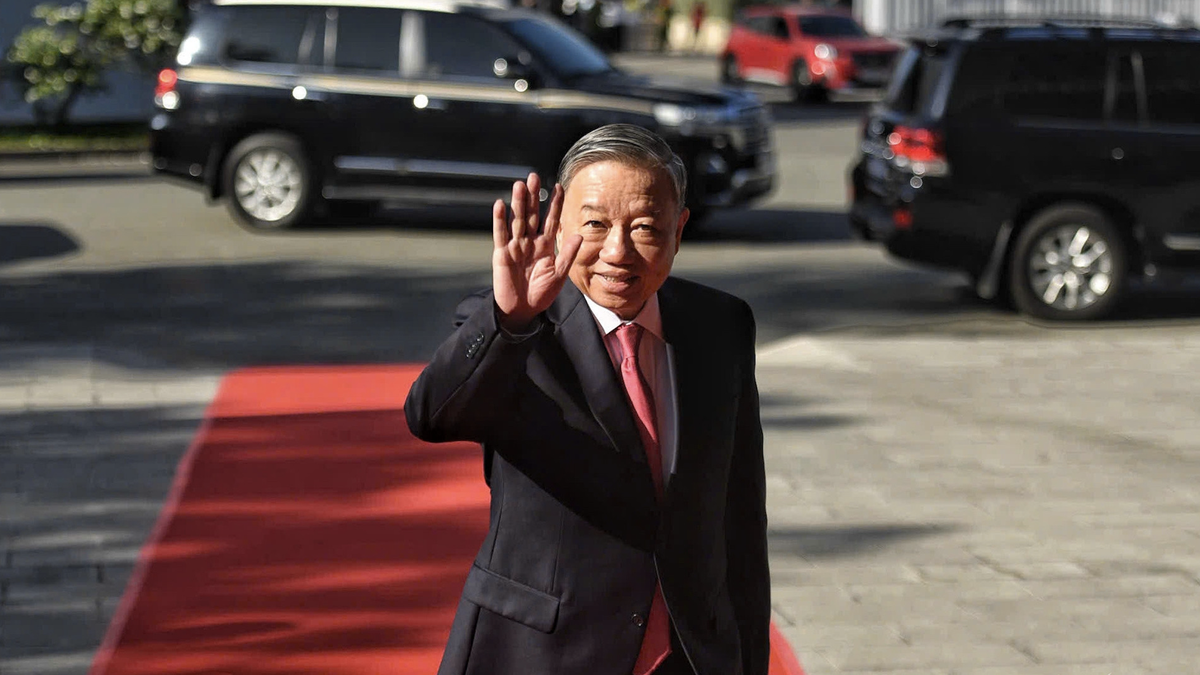








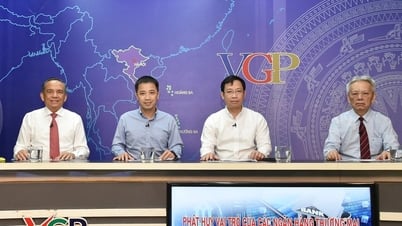








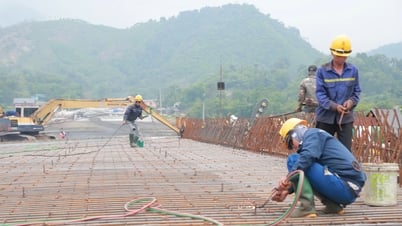


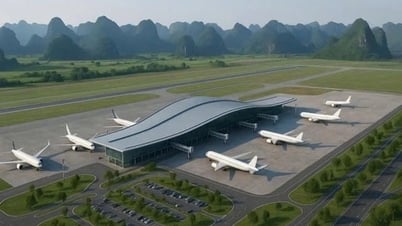











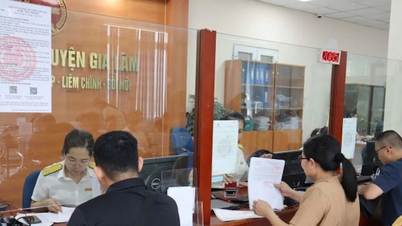

























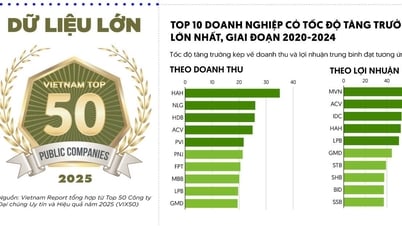



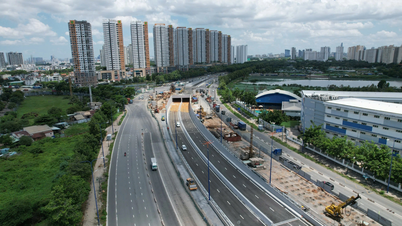









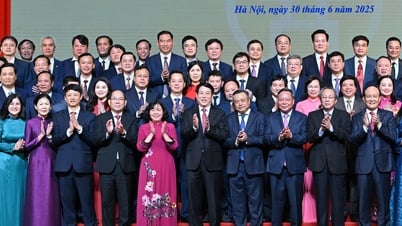

























Comment (0)